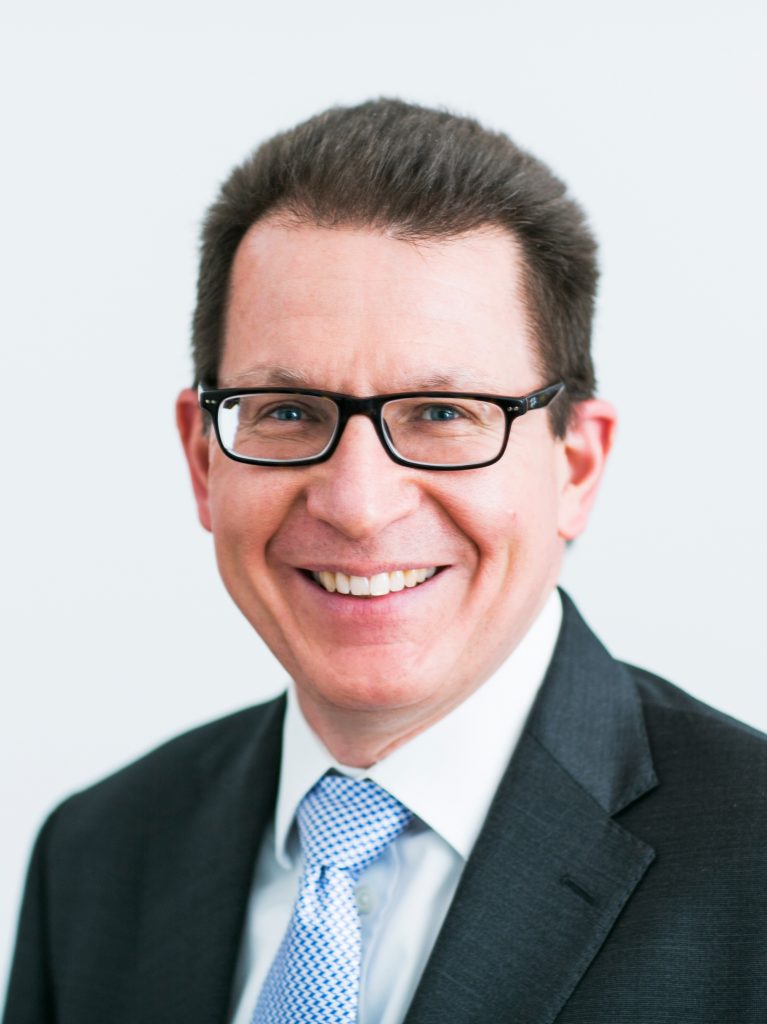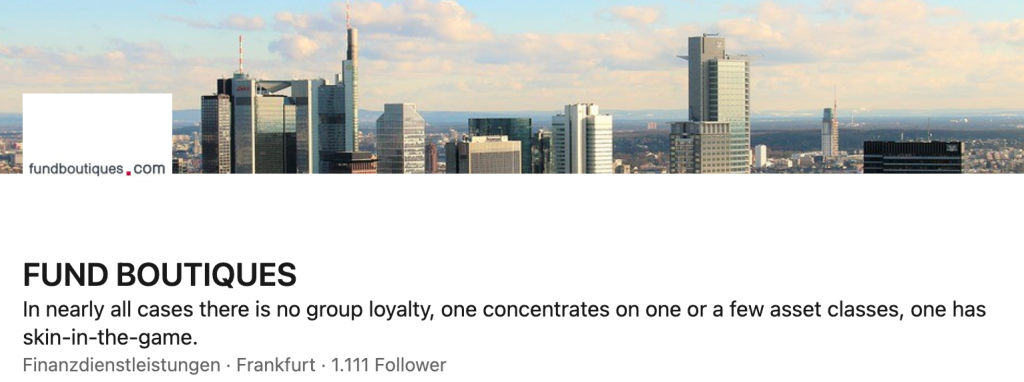Mindfulness means that we dwell completely on what we are doing without allowing ourselves to be distracted” (Dalai Lama). Markus Hill spoke for FONDSBOUTIQUEN.DE with Alexander Scholz, TELOS GmbH, about topics such as fund boutiques & COVID crisis, “webinar fatigue” versus face-to-face, as well as ESG and the importance of so-called alternative asset classes in this asset manager segment. Additionally, topics such as “Old Man & Nylon Clothes”, Taunus and Giro d’Italia were discussed (event note: Wiesbaden Alternative Conference, Nov. 4, 2021).
Hill: Mr. Scholz, you regularly conduct market surveys of institutional investors with TELOS. Are there any targeted surveys among them regarding specialized, smaller asset management fund boutiques?
Scholz: We do not conduct market surveys specifically aimed at smaller asset management companies. But in the satisfaction survey, which has been conducted annually since 2004 and in which institutional investors are asked about their satisfaction with their asset managers, we differentiate between three size categories – “Large Asset Managers” (from 150 billion euros AuM), “Medium-sized Asset Managers” (51 to 150 billion euros AuM) and “Smaller Asset Managers” (up to 50 billion euros AuM). In this respect, we have a long data history, at least in terms of investor satisfaction.
Hill: That sounds exciting. How do the fund boutiques compare to the other categories?
Scholz: In the early days, the smaller asset managers were still significantly underrepresented in the mentions. That is, they hardly played a role in the portfolios of institutional investors. However, this has changed significantly in recent years. In the meantime, the group of smaller asset managers accounts for more than ¼ of the mentions. This clearly shows that fund boutiques are increasingly accepted and selected by institutional investors.

Hill: So what about investor satisfaction with “their” fund boutiques? Can you rather classify them under the category “it was a nice try” or is the quality of the fund boutiques rated positively?
Scholz: Here, too, there is a clear positive trend. The satisfaction ratings have continued to improve over time. In the recent survey, in particular, this trend has accelerated once again. Particularly in the customer-related criteria such as customer service and advice or the proactive approach, the smaller asset managers scored better than the two larger categories. The smaller asset managers were able to play off their flexibility and individuality very well in the COVID phase.
Hill: Do you guess as to what that might be due to?
Scholz: Without knowing for sure, but possibly it’s due to the absence of customer service due to the home office arrangement. At smaller asset managers, employees were often more likely to be in the office than at the larger houses with their open-plan offices. The larger providers have relied more on online support, e.g., via webinars, for this purpose. This was also positively received by investors in the early days. Over time, however, this became routine and the “appeal” of the new was lost. I think investors increasingly longed for an individual, personal discussion.
Hill: So you could say that the fund boutiques are the winners of the COVID restrictions.
Scholz: Partly, certainly. Nevertheless, in parts, the situation was and still is difficult for the fund boutiques as well. Most investors have allocated free funds with portfolio managers. Winning new clients without face-to-face meetings is a very difficult undertaking. But looking forward, the smaller asset managers can certainly benefit from being closer to their clients.
Hill: What about other criteria? Have the fund boutiques improved there as well?
Scholz: Yes, that is the case. For example, in the area of ESG competence, the smaller asset managers have improved significantly. In reporting, the satisfaction of institutional investors has also increased. This shows that the fund boutiques are becoming increasingly professional and are adapting to the requirements of institutional investors.
Hill: TELOS also acts as a consultant and supports institutional investors in manager selection. How do you perceive the fund boutiques here?
Scholz: Due to the increasingly complex asset allocation of institutional investors with more and more asset classes and strategies, specialized fund boutiques are also coming more into focus here. This applies to special investment styles or concepts in the liquid segment, but also in particular to the so-called “alternative asset classes” such as real estate, infrastructure, private equity, or private debt. It is precisely here that specialized fund boutiques are increasingly coming into their own. This is also reflected in the responses to the satisfaction survey.
Incidentally, at our investor conferences, such as the Wiesbaden Alternative Conference on November 4, the presentations by the fund boutiques, some of which are not yet so well known, also meet with great interest among investors.
Hill: So all in all, a very positive picture for fund boutiques. Mr. Scholz, allow me to ask you a question away from your day-to-day work. What are you involved with outside the business world?
Scholz: As a member of the midlife crisis generation, I spend most of my free time on my racing bike – “old man in tight nylon gear,” as it were. In doing so, I can enjoy nature and clear my head. Fortunately, I share the hobby with my wife, so we often go on rides together in and around the Taunus. In the passive area, too, the topic of road cycling dominates for me. For example, I am currently reading the book “Pellegrina: An Italian Cycling Pilgrimage”. In the book, a journalist describes her impressions of a pilgrimage to the pilgrimage sites of the Giro d’Italia. Recommended for cycling and Italy fans.
Hill: Thank you very much for the interview.
Alexander Scholz is Managing Director and shareholder of TELOS GmbH. Before joining TELOS in June 2016, he was Deputy Head of Institutional Sales at GAM Germany. Overall, he has more than 20 years of industry experience in the area of asset management consulting, fund and investment analysis, investment controlling and reporting portfolio management, and customer service at asset management companies and banks.
EVENT NOTE: Wiesbaden Alternative Conference
“With the Wiesbaden Alternative Conference, we take into account the increased interest of institutional investors in alternative asset classes such as real estate, infrastructure, private debt, private equity but also the so-called ‘liquid alternatives and offer investors a corresponding forum for information exchange and information gathering.”
EVENT FOR INSTITUTIONAL INVESTORS (11/4/2021 – INFORMATION / AGENDA / REGISTRATION): Wiesbaden Alternative Conference 2021.

Photo: www.istock.com/travelview
